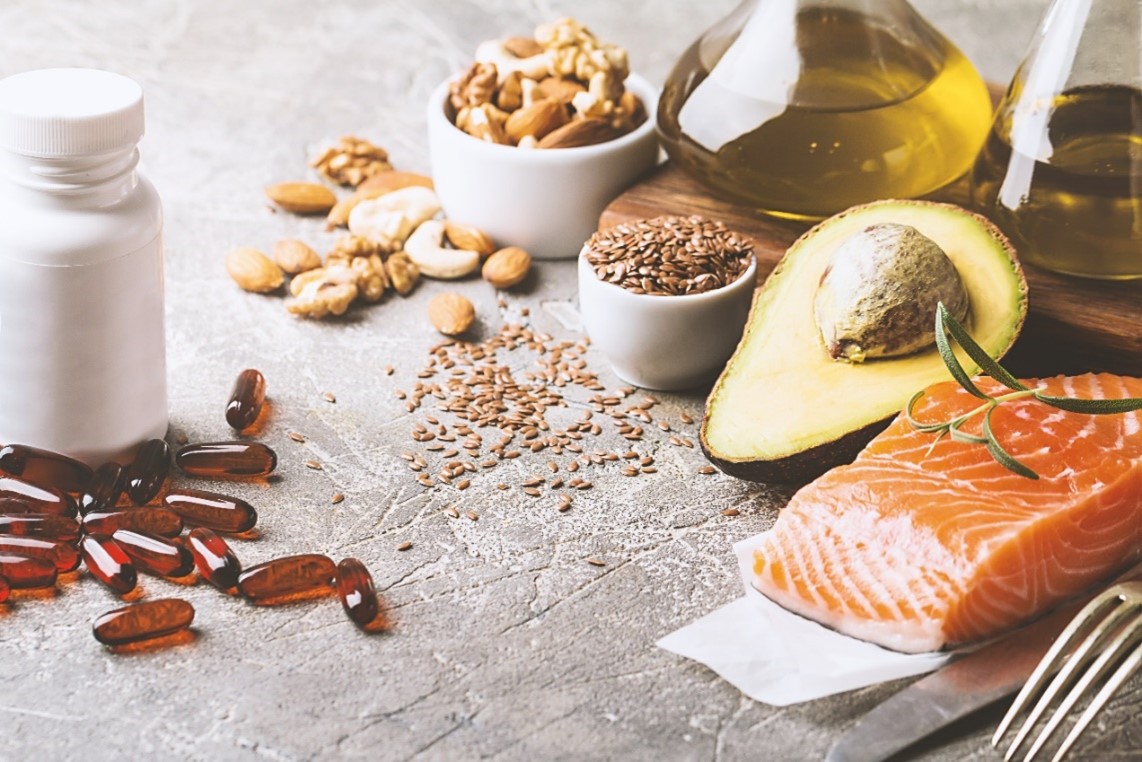Carbs, fats and proteins, we need all three! Fats, in particular, have developed a negative stigma over time. However, healthy fats do exist, and we should be consuming them regularly.
What do healthy fats do for our bodies? First, they have the ability to raise and lower our high-density lipoprotein (HDL) and low-density lipoprotein (LDL) cholesterol levels. LDL cholesterol, also known as “bad” cholesterol, is the plaque that builds up in our arteries, leading to heart complications. HDL cholesterol, also known as “good” cholesterol, is what carries LDL cholesterol to the liver, where it is broken down and expelled from the body.
Healthy fats also:
- Give your body energy
- Support cell growth
- Protect your organs
- Keep you warm
- Produce important hormones
- Help your body absorb nutrients
- Improve fat oxidation
- Reduce inflammation
- Stabilize heart rhythms
- Improve brain health/cognitive function
There are three categories of fats: unsaturated fats, saturated fats and trans fats. Unsaturated fats are the most vital due to their nutritional benefits. They can be subcategorized into monounsaturated fats and polyunsaturated fats.
Saturated fats can be good and bad, with some foods (e.g., lean meats, coconut oil and eggs) being beneficial in moderation and others (e.g., butter, lard and red meats) having a more negative effect.
Lastly, you should avoid trans fat due to its lack of nutritional benefits. Examples of foods containing trans fats include fried foods, processed foods, baked goods and fast food.
Below is a chart with examples of healthy fats to include in your diet.
| Unsaturated Fats
· Monounsaturated and polyunsaturated fats · Healthiest type of fat · Helps lower LDL and increase HDL · Maintains cells · Helps with fat oxidation · Improves nutrient absorption · The majority of the fats you consume should come from these categories (in moderation) |
Saturated Fats
· Consume in moderation · Can raise your LDL if eaten in excess
|
|
| Monounsaturated
|
Polyunsaturated
Contains omega-3 and omega-6, which are essential nutrients |
Healthier Saturated Fats |
| Olive oil, peanut oil, canola oil, safflower oil, sesame oil, avocado oil | Fish: especially salmon, anchovies, herring, mackerel, tuna and sardines | Ghee |
| Avocados | Soybean oil, canola oil, sunflower oil | Grass-fed butter |
| Peanut butter | Nuts and seeds: walnuts, sunflower seeds, flax seeds | Lean meats (e.g., skinless chicken, turkey) |
| Nuts and seeds — especially pumpkin and sesame seeds | Tofu | Eggs |
| Soybeans | Coconut oil | |
The role healthy fats have in our lives is significant and shouldn’t be overlooked. With proper dietary planning, the benefits you can gain from consuming the right fats is monumental.
By: Davon Randolph

